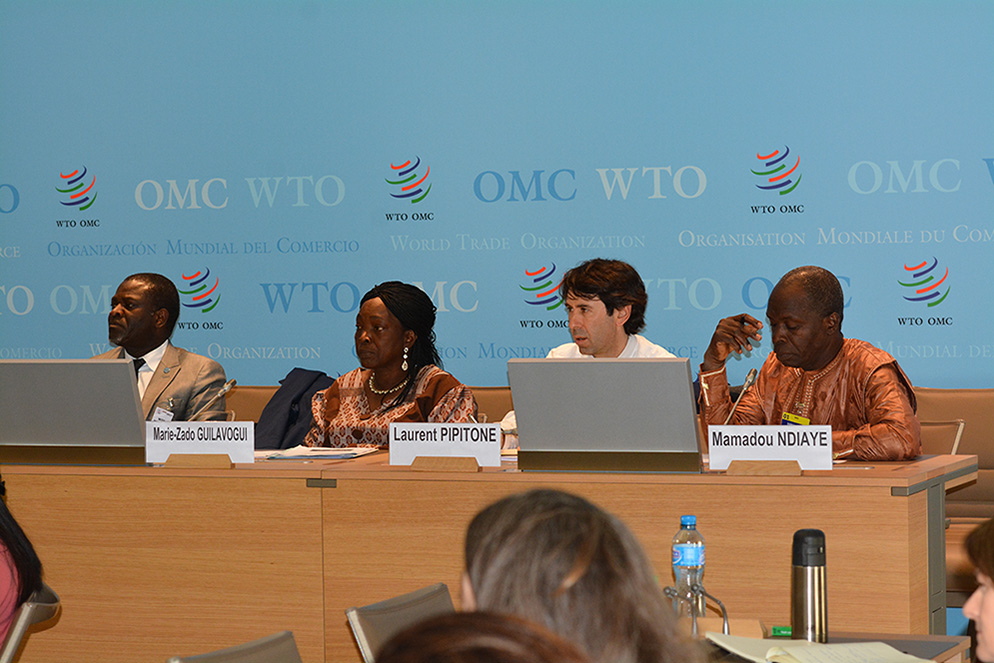STANDARDS AND TRADE DEVELOPMENT FACILITY
More
Sustainable cocoa plantation in West Africa
The event started with a presentation of the "SPS Cocoa Africa" project implemented in five West African countries – Cameroon, Côte d’Ivoire, Ghana, Nigeria and Togo. These countries account for over 70% of world cocoa production. The project helped operators in the cocoa sector gain a better understanding of the benefits of sustainable agricultural practices, such as integrated pest management to mitigate the effects of pesticide residues in cocoa.
"In many cocoa importing countries, consumers are becoming increasingly aware of food safety concerns, with a perception that the use of chemicals and other substances in the production and processing of cocoa might be detrimental to their health," said Mr Laurent Pipitone of the International Cocoa Organization. Meeting sustainable cocoa plantation standards not only helps farmers harvest a safe and high-quality product but also guarantees the longevity of plantations, thereby protecting the long-term revenue of producers.
Empowering women in small-scale fishing sector
A project to improve sanitary and hygiene standards in the small-scale fishing sector in West Africa was highlighted as a means of empowering women. In West Africa, women sell 80% of fish and seafood, which constitute a major food commodity for coastal countries.
Mrs Marie-Zado Guilavogui, a fish farmer in Guinea, shared her experience. Women in Guinea used to dry fish products using an open fire, a practice that is not only unhygienic but also dangerous, said Mrs Guilavogui. The STDF, in collaboration with the United Nations Industrial Development Organization (UNIDO), initiated a project to provide special training to boilermakers and bricklayers on how to construct ovens to dry fish products. The project currently operates in Côte d'Ivoire, Guinea, Mauritania and Senegal and is helping women to play a more active role in this sector.
Sustainable production of cabbage in Senegal
Mr Mamadou Ndiaye, Coordinator of the Association of Horticultural Unions of the Niayes Region, introduced a project that supports the cabbage sector in this region of Senegal.
In Senegal, cabbage is a staple commodity and is consumed on a daily basis. The project to support sustainable cabbage production sought to revitalize cabbage farming by helping farmers cultivate high-quality cabbage and monitor cabbage pests and by providing training to farmers on draft laws concerning unapproved phytosanitary products.
The project significantly improved cabbage yields, thanks to the high-quality inputs supplied to producers, the use of best agricultural practices, and the training and technical support provided. The Association also helped traders improve sanitary standards in respect of transport and storage and increase their market share in the region.
The STDF is a global partnership established by the WTO and four other international organizations — Food and Agriculture Organization (FAO), World Organisation for Animal Health (OIE), World Bank and World Health Organization (WHO) — to help exporters of agricultural goods in developing countries improve their ability to meet sanitary and phytosanitary (SPS) standards.
Since its creation in 2004, the STDF has supported 150 projects to help developing countries improve their SPS capacity and promote safe trade in food and agricultural products. Approximately 40% of the resources go to French-speaking countries and other Francophonie members such as Cambodia and Viet Nam.
Find out more about the Standards and Trade Development Facility (STDF).
Share
Share
Problems viewing this page? If so, please contact [email protected] giving details of the operating system and web browser you are using.
